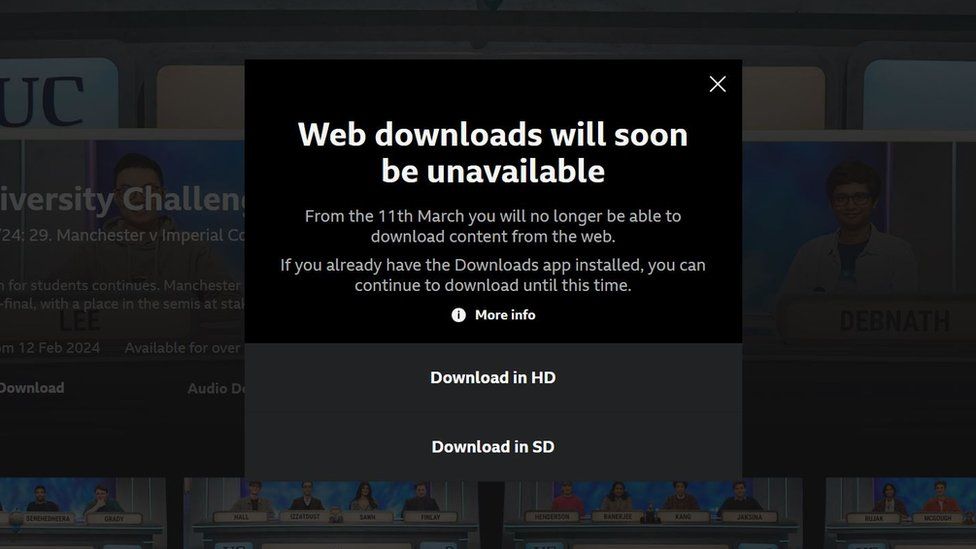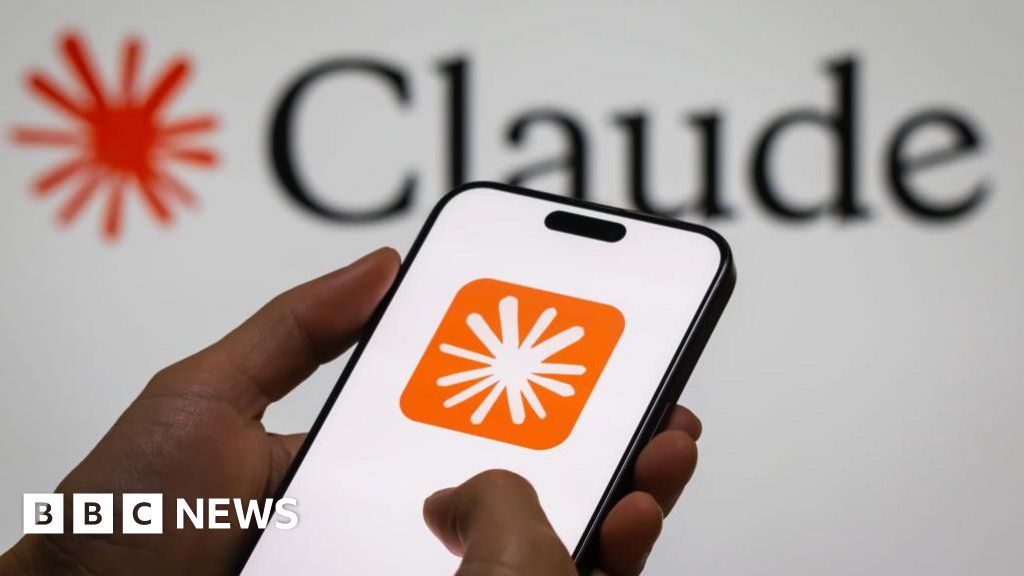ARTICLE AD BOX

An iPlayer message gives notice about the decision to end downloads for desktop and laptop computers
By Chris Vallance
Technology reporter
The BBC's iPlayer streaming service is to end downloads for users who watch on desktop or laptop computers.
Programmes will still be available to download on tablets and phones via the mobile iPlayer app.
Currently viewers on PCs and Macs can save programmes via the iPlayer Downloads app, but that will be closed.
The changes were "due to the low number of people using it and the cost required to keep it going" the BBC said.
"This does not affect downloads on the BBC iPlayer mobile or tablet apps and viewers can continue to stream programmes on BBC iPlayer on their PCs and Macs," a spokesperson added.
The BBC has published a timeline of the planned changes:
- 2 February - new downloads of the BBC iPlayer Downloads app end
- 11 March - downloading programmes from the web will end. Users will still be able to watch any existing downloads until 8 April
- 8 April - the BBC iPlayer Downloads app will be closed
The corporation declined to reveal how many people would be affected by the closure of downloads for users of desktops and laptops, but the decision has attracted some criticism.
One user, Steve Gerrard, posted on X (formerly Twitter): "This is terrible news. I watch almost all my BBC shows on my MacBook."
And former BBC Journalist Robert Rea wrote: "This strikes me as a very bad move. Why would you want to make it harder to watch your programmes?"
Figures released last year show traditional TV viewing had its sharpest ever decline in 2022, according to the latest annual survey of UK media consumption by broadcasting watchdog Ofcom.
But the BBC has been keen to highlight "record" growth in digital services.
iPlayer now accounts for 18% of the BBC's total viewing, Ofcom found.

 1 year ago
103
1 year ago
103








 English (US) ·
English (US) ·